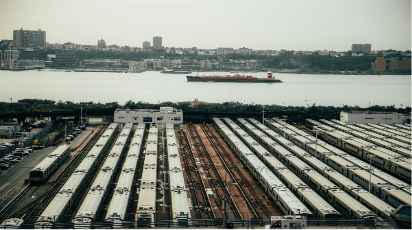The shipbreaking industry in Bangladesh is experiencing a significant change because the Hong Kong Convention (HKC) on ship recycling will become a global law on 26 June 2025. This update, announced just five days ago, marks a turning point for the world’s largest ship demolition nation and combines the core shipbuilding/shipping sector with other priorities in environmental safety and technology. Ratified by Bangladesh in June 2023, the HKC sets out international requirements for safe and environmentally sound recycling of ships. It mandates that ships carry an Inventory of Hazardous Materials (IHM) and that shipbreaking facilities follow strict safety and waste management plans. Bangladesh currently handles nearly half of the world’s end-of-life vessels, making it a key player in global maritime trade. The approaching HKC deadline brings along challenges as well as chances for growth. According to industry data, around 90% of Bangladeshi yards are not yet HKC-compliant—unlike India, where 82% of yards meet the standard . To bridge this gap, time and resources are needed, but experts say that Bangladesh can legally phase in changes gradually, thanks to the Convention’s flexibility for developing countries. What this means in practical terms is a shift toward modern, safer shipbreaking. Yard owners must now provide each dismantling ship with a clear recycling plan, properly manage toxic materials like asbestos and heavy metals, and improve on-site worker safety and monitoring systems . These standards align with IMO technical guidance designed for sustainable transitions. The impact will be broad. Workers will benefit from better protective equipment, training, and safer demolishing processes. Coastal communities will notice cleaner beaches and healthier waterways. The government, in collaboration with international partners like IMO and Norway’s SENSREC project, is preparing technical upgrades in yards, including new treatment facilities and third-party audits. By applying the HKC, Bangladesh stands to retain its global leadership in shipbreaking while creating a safer and greener industry. This change also opens new opportunities: yards that comply with international standards can attract more business from global shipowners seeking eco-responsible recycling partners. Proactive yard modernization could also generate jobs—particularly in environmental management, safety compliance, and monitoring. These roles align with OECD’s “green jobs” trend and support broader sustainable development goals. Exporting expertise in waste management and safety may even become a future Bangladesh service. While achieving full compliance by June 2025 is a challenge, a phased and monitored transition offers a positive path forward. As Bangladesh embraces safer, technology-driven shipbreaking, it protects workers, strengthens environmental stewardship, and sets an example for sustainable development in emerging economies.
Bangladesh Prepares for Hong Kong Convention, Modernizes Shipbreaking
5

